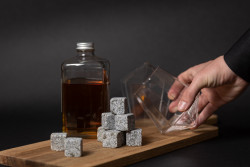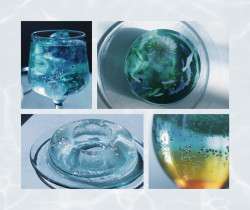
Originally published on metropolis.co.jp on October 2012
DEPT. OF SELF-GRATIFICATION

- A newly opened nightspot in Shibuya called Bar Joule offers women “a pleasant place in which they can openly discuss masturbation.”
- As if the Japanese needed any further reason to embrace all things kawaii, a group of researchers at Hiroshima University found that people concentrate better after looking at pictures of cute animals.
- Among the items on display at an exhibition of the Shoso-in Treasures in Nara is a Persian goblet that’s being shown for the first time in 18 years.
HEY NOW, SETTLE DOWN
- A Japanese scientist who was part of an international team that “measured the relative diameter of a column of plasma particles coming out of a black hole” says the achievement is “epoch-making.”
- A psychologist who listened to a recording of a purported confession made by a death row inmate convicted of killing four family members in Shizuoka in 1966 says the tape “lacks concrete detail” and was “made by an innocent person.”
- Health officials are concerned that Japan’s rapidly aging society is vulnerable to an epidemic of a sleep disorder that disproportionately affects the elderly. The condition is characterized by “shouting or getting up suddenly and acting violently.”
- Australian Defense Minister Stephen Smith visited Tokyo and vowed to boost military ties with Japan, particularly in the field of “equipment and technologies.”
TAKE A NUMBER
- Officials at the welfare ministry say a whopping 7,257 children are on a waiting list to enter daycare in Tokyo. The prefecture with the next longest list is Okinawa, with 2,305 kids waiting.
- Meanwhile, the internal affairs ministry reports that the number of municipalities at “significant” risk of bankruptcy has declined from six to two during the past year.
- The health ministry says per capita medical expenses have reached a record high for the fourth year in a row. The average outlay is ¥292,200.
CHEAP BASTARDS
- It was reported that the Ministry of Defense paid SDF personnel involved in disaster relief following the March 11 earthquake a per diem rate of just ¥1,620.
- The payments increased to ¥6,480 for workers in areas with tsunami warnings and ¥42,000 for “those working close to the crippled nuclear plant.”
- Officials at the agriculture ministry say they’ll stockpile 500 tons of rice in preparation of a large-scale earthquake. After the March 11 disaster, a rice shortage forced the government to feed survivors with grain bought from private suppliers.
- Auditors say the Bank of Japan has been holding on to four huge unused lots in Tokyo for 30 years. One is a “a super-prime location adjacent to the bank’s headquarters in Chuo Ward.”
EXCUSES, EXCUSES
- Officials at JR Tokai suspect a small animal chewed through a transmission cable on the Tokaido shinkansen line, delaying 81 bullet trains and affecting 68,000 passengers.
- After a spate of complaints from male motorcyclists, officials in Himeji have decided to get rid of a law that says license plates on bikes must carry an image of the city’s mascot. The character, dubbed Shiromaruhime, “is a round-faced ‘princess’ with a castle on top of her head and a flowery hair accessory.”
- A 21-year-old member of the “idol” group D-style was suspended by her management company for “working at a sex club in Kanagawa Prefecture” last year.
PHYSICIAN, HEAL THYSELF
- A woman in Kobe with hepatitis B was fired from her job as a medical receptionist… despite the fact that the disease is typically transmitted only through sexual contact and blood transfusions. “We can’t have a person with a virus working here,” the bosses told her.
- After realizing that nearly half of Tokyo’s water supply would be cut off in the aftermath of a major earthquake, the Bureau of Waterworks announced it will allow the city’s 130,000 fire hydrants to be used as “drinking stations” by survivors.
ROCK BOTTOM
- The health ministry says the number of welfare recipients in Japan hit a record high in June. The total now stands at 2,115,477.
- To alleviate the problem, officials drafted new measures, including one providing benefits to recipients who “try hard” to find a job.
Compiled from reports by AP, Japan Today, The Japan Times, Jiji, The Tokyo Reporter, Japan Probe, The Mainichi, Daily Yomiuri, AFP, Reuters and Kyodo







